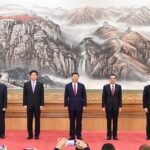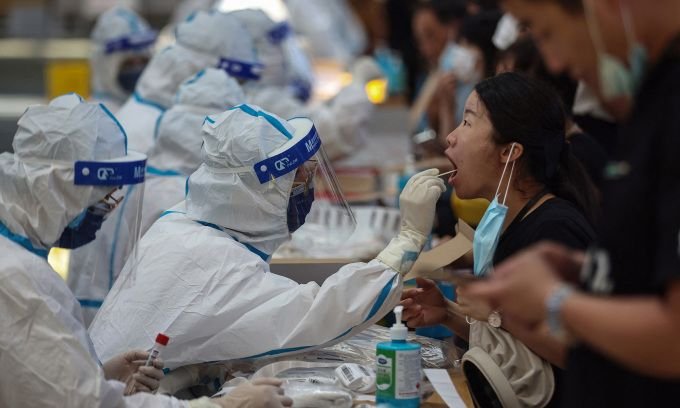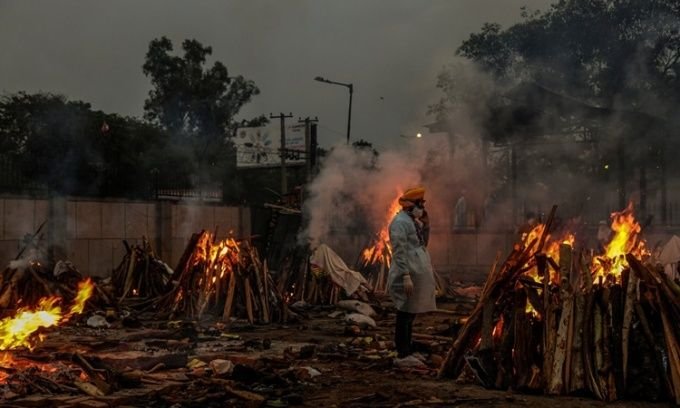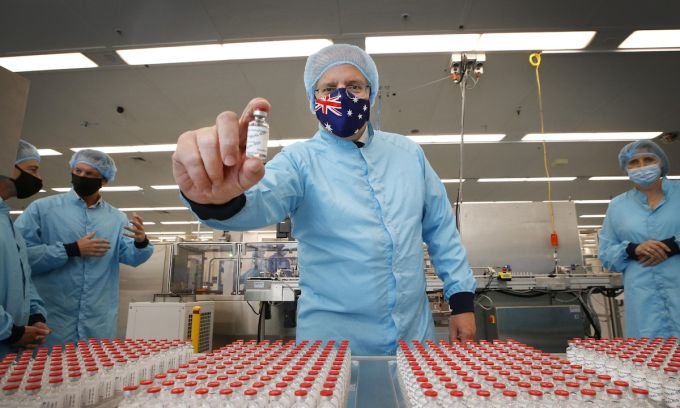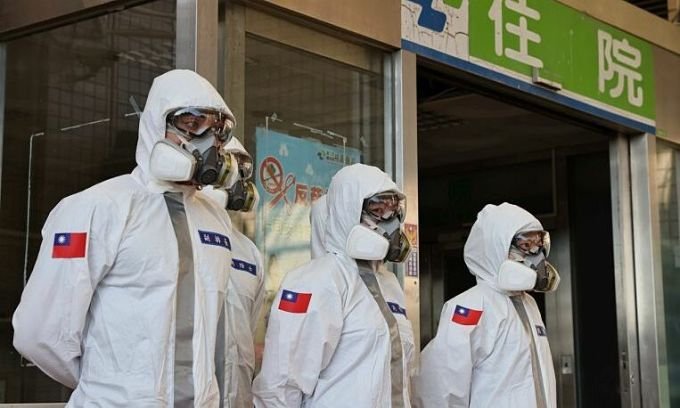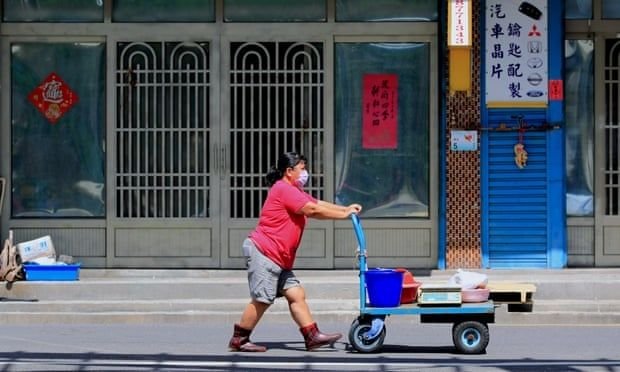During a press conference on July 29, officials of Nanjing city, Jiangsu province, confirmed the appearance of the Delta variant in the current outbreak, adding that at least four other provinces have recorded cases of related infections.
The outbreak began after 9 workers at the airport tested positive for nCoV on July 20.
The Delta strain is exposing limitations in the strategy to completely eliminate Covid-19 applied in China, Australia, New Zealand or Singapore.
The island of Taiwan, after months of not reporting any cases last year, recently withdrew its strategy of completely eliminating Covid-19 after a major outbreak, announcing a shift to a strategy of living with the virus.
Medical staff take nCoV test samples for people in Nanjing city, Jiangsu province, China, on July 21.
Signs of concern among Chinese officials seem to be shown through a meeting between leaders and health officials in Jiangsu province on July 28 to discuss the epidemic.
Officials called for stronger epidemic prevention measures, including `closing communities and areas`.
Nanjing authorities have suspended all flights until mid-August, according to anonymous sources from Global Times.
Under the new restrictions, closed public places such as cinemas, gyms and bars have been closed, and the number of people allowed to gather has also been reduced.
Nanjing officials also set up six temporary testing sites at exhibition centers and train stations.
Other cities in Jiangsu province have also strengthened anti-epidemic measures, such as Suzhou setting up 18 checkpoints on highways into the city to check the health status codes of people coming from Nanjing and Dong Nai.
Despite a series of drastic and swift actions, the virus appears to have spread beyond Jiangsu province, with cases from Nanjing appearing in Anhui, Liaoning, Sichuan and Guangdong provinces.
Concerns are also increasing about the risk of a further outbreak, related to a performance with more than 3,000 spectators on July 22 in Zhangjiajie, Hunan province.
In addition to posing a challenge to the strategy of completely eliminating Covid-19, observers assess that this outbreak is also a test of the effectiveness of the mass vaccination program in China with more than 1.5 billion doses administered.
Many new cases, including workers at Nanjing airport, were fully vaccinated against Covid-19, but only 4 cases became severe.
According to studies, the effectiveness rate of Chinese vaccines in preventing symptomatic nCoV infections ranges from 50-80%, lower than the more than 90% of Pfizer and Moderna vaccines.
Outbreaks since the beginning of this year in China have been minor compared to other parts of the world, but there is still enough pressure to force the country’s officials to carefully consider the possibility of increasing doses in the vaccination campaign.
Sinovac Company, the manufacturer of the Covid-19 vaccine that is the backbone of China’s vaccination campaign, said on July 28 that the third dose of vaccine will help increase the amount of antibodies by 3-5 times.
In April, an anonymous source revealed that China also plans to approve the Pfizer-BioNTech vaccine, which can be used as a booster shot for people who have been fully vaccinated with the Chinese vaccine.

